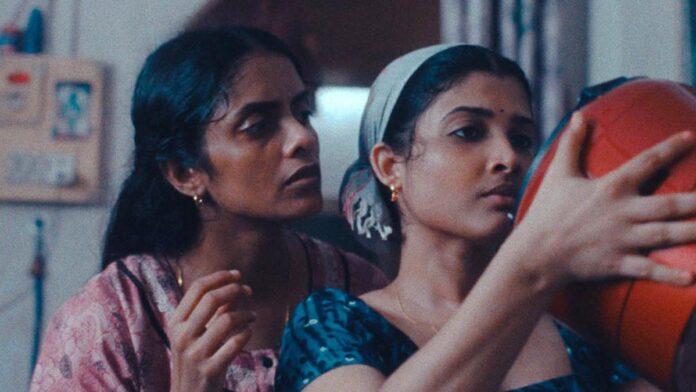The tenderness of Payal Kapadia’s latest film is rare to see, not only in Indian cinema of late but in general. Often, recently, the concepts of romance, sex, longing, and loss are accompanied by either a pandering level of condescension for the characters or a deep focus on trauma that bypasses emotion for tawdry symbolism. The aim is often to manipulate the audience into a sense of pity or attraction for the character, rather than letting the characters feel deeply for each other. This movie, with its gentle jazz-piano score by Topshe, its soft sound design that turns the cacophony of Mumbai into a lo-fi free-jazz rhythm, and its concentration on its characters’ skin—the warmth, the wetness, the softness—portrays the intense swirl of everything that surrounds love and belonging in few words. Its subtlety never feels embarrassed about being melodramatic. The poetic overlays and the direct obvious questions that Anu (Divya Prabha) asks her boyfriend Shiaz (Hridhu Haroon), like “Do you ever think about the future?,” are modes of melodrama that slip perfectly into place in the film’s quietness. The forbidden love of a Hindu girl and a Muslim boy refreshingly soars above its political implications. A filmmaker who values meaning over feeling could have easily turned this into a “state of the nation” address, but Kapadia’s eye for the gestures and smirks and tender looks that define burgeoning love rings louder than any pointed commentary that could’ve accompanied it. Prabha and costar Kani Kusruti perfectly embody their disparate experiences with love. Chhaya Kadam’s performance as the easygoing Parvaty is the sturdy bridge that joins them. 118 min.
Gene Siskel Film Center







